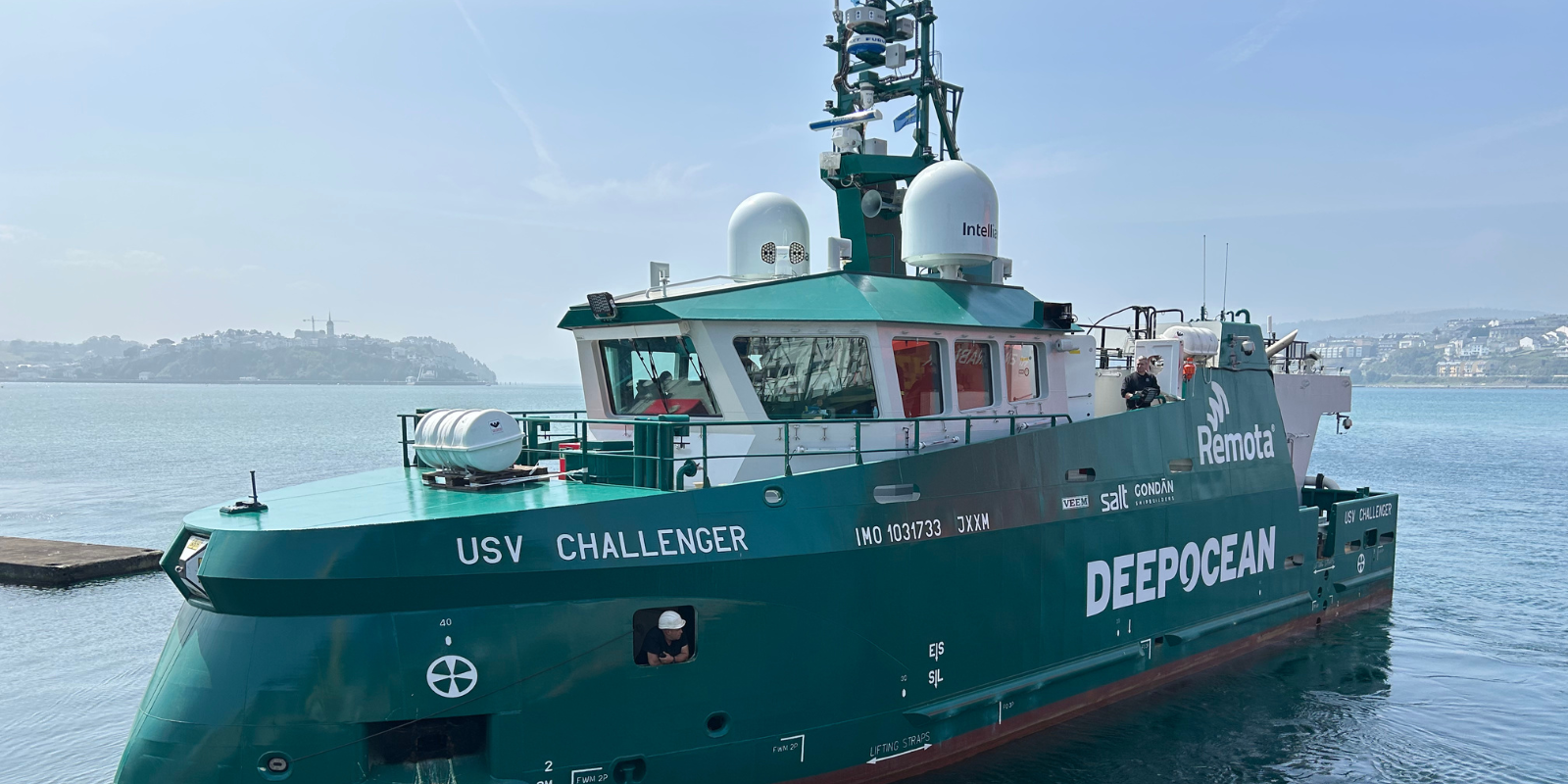Unmanned Surface Vessels (USVs)
Unmanned surface vessels are increasingly being used as platforms for deploying ROV systems, particularly in offshore operations where efficiency, safety, and environmental impact are key considerations.
By removing the need for onboard personnel, USVs contribute to a significant reduction in CO₂ emissions and eliminate many of the health, safety, and environmental (HSE) risks associated with traditional vessel based operations. In addition, they offer cost savings for operators by reducing crew requirements and vessel size.
Operating ROVs from USVs introduces new technical challenges, especially when missions are fully unmanned and remotely supervised. In such scenarios, system reliability, autonomy, and long duration performance become critical. The ROV must be capable of maintaining stable operation under varying sea conditions, with robust communication links and fault tolerant control systems.
Argus has contributed to this development by delivering the work class ROV system for DeepOcean’s first USV, the USV Challenger. The system was adapted to meet the specific requirements from DeepOcean, with emphasis on reliability and remote control. This project represents a step forward in integrating heavy duty subsea capabilities with autonomous surface platforms, and highlights the growing role of unmanned technologies in offshore operations.

